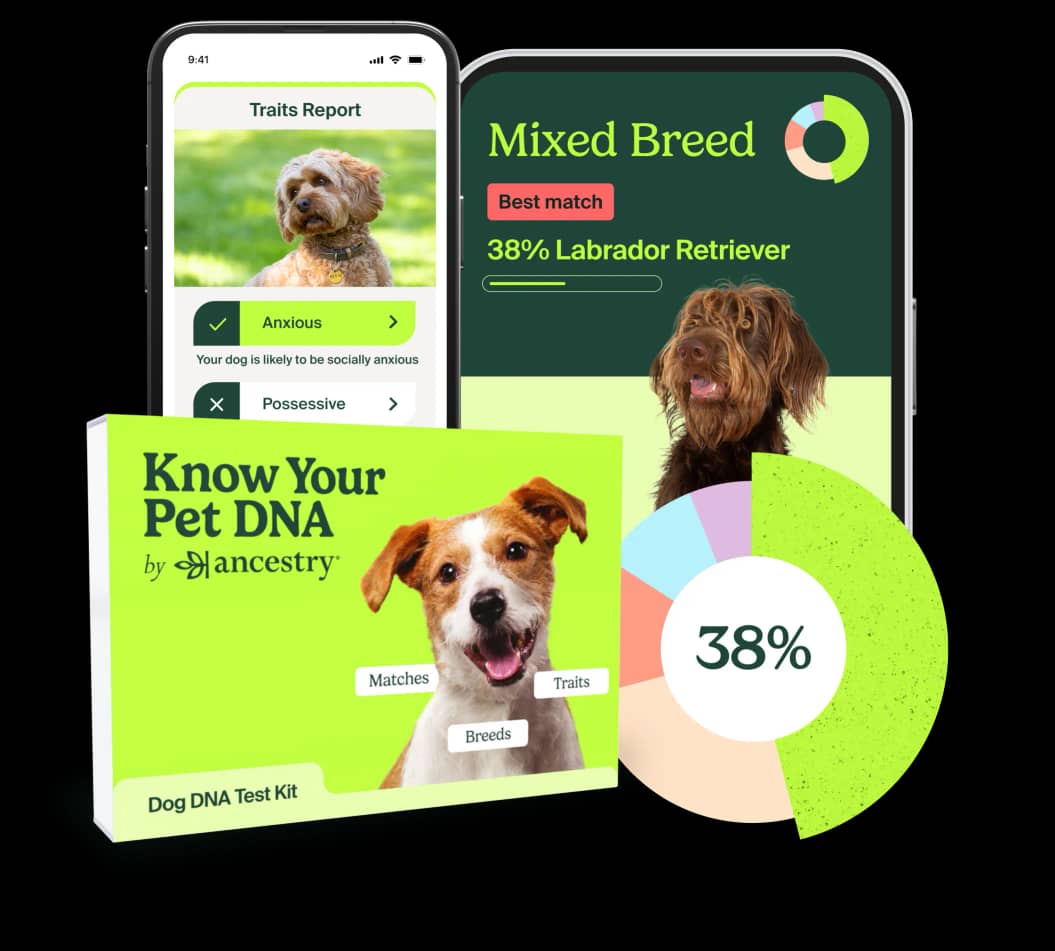Genetic Testing For Pets In 2024 (Perfect Guide For Benefits And Considerations)

Explore the comprehensive guide to genetic testing for pets in 2024. Discover key benefits and considerations of DNA analysis for your furry companions. Learn how understanding your pet’s genetics can lead to proactive healthcare, improved breed knowledge, and responsible breeding practices. This article dives into:
- The rising popularity and technological advancements in pet genetic testing.
- Insightful benefits like disease prevention and breed identification.
- Ethical concerns and emotional impacts of testing outcomes.
- Future trends shaping the landscape of pet genetics.
- FAQ section addressing common questions about genetic testing for pets.
Equip yourself with the essential knowledge needed to make informed decisions about your pet’s health and well-being through genetic testing.
Introduction
Genetic testing for pets is becoming increasingly popular in 2024, proving to be an essential resource for both pet owners and veterinarians. Thanks to technological advancements, we can now decode your pet’s DNA, providing unprecedented insights into their health and genetic background. Understanding pet genetics is crucial for proactive healthcare, allowing us to detect and prevent potential health risks early on.
In this guide, we’ll explore the benefits of genetic testing, such as disease prevention and improved care strategies. We’ll also discuss important considerations like ethical concerns and emotional responses. By examining these factors, you can make informed decisions that prioritize your furry friends’ well-being. Additionally, we’ll highlight emerging trends in genetic testing for pets so you can stay up-to-date with the latest developments in this ever-changing field.
Understanding Genetic Testing for Pets
Genetic testing for pets involves analyzing a pet’s DNA to uncover vital information about their genetic makeup. This process, often referred to as DNA analysis, is revolutionizing the way pet owners and veterinarians approach animal healthcare.
How It Works
By extracting a small sample of your pet’s DNA, technicians can examine specific genetic markers that indicate health risks, ancestral lineage, and breed characteristics. These markers are like genetic fingerprints, providing a detailed map of your pet’s unique genetic code.
Different Types of Genetic Tests
Different types of genetic tests are available to cater to various needs:
- Health Risks: Tests can identify predispositions to certain diseases, allowing for early intervention and tailored healthcare strategies. For example, discovering a mutation in the MDR1 gene can inform medication choices.
- Breed Identification: Particularly useful for mixed-breed pets, these tests reveal breed composition. Understanding breed-specific traits aids in managing behavior and anticipating health needs.
By gaining insights into pet genetics through DNA analysis, you’re equipped with valuable knowledge that supports proactive decision-making regarding your pet’s health and well-being.
The Benefits of Genetic Testing for Pets
Genetic testing offers a wealth of advantages for pet owners and breeders alike. By delving into a pet’s DNA, you can unlock critical insights that pave the way for improved health and care strategies.
1. Disease Prevention Through Early Detection
One of the most significant benefits is the ability to predict potential health risks. Identifying genetic disorders early allows you to implement preventive measures, potentially extending your pet’s lifespan. For instance, detecting gene mutations like MDR1 can inform medication protocols, ensuring your pet avoids adverse reactions.
2. Insight into Breed Composition
Understanding your pet’s breed makeup provides a foundation for tailored care strategies. With mixed-breed dogs, genetic testing reveals ancestral lineage, shedding light on behavioral tendencies and breed-specific health predispositions. This knowledge equips you to make informed decisions about diet, exercise, and training tailored to your pet’s unique needs.
3. Ethical Breeding Practices
For breeders, genetic testing is an essential tool in promoting ethical breeding practices. By identifying carriers of inherited diseases, breeders can make informed pairings, reducing the likelihood of passing on genetic disorders to future generations. This proactive approach not only enhances the health of individual litters but also contributes to the overall well-being and diversity of breeds. Such practices are supported by research indicating that genetic testing can significantly reduce the incidence of hereditary conditions in pets 1.
4. Contributions to Canine Health Research
Participating in genetic testing also aids broader research efforts aimed at improving canine health. Data collected from these tests contribute to studies investigating common genetic conditions across different breeds. This collective knowledge helps refine testing methods and develop new treatments that benefit pets worldwide 2.
Each of these benefits underscores the transformative potential of genetic testing in enhancing pet care and contributing positively to the field of veterinary science. As technology continues to evolve, these insights become even more precise and impactful, promising a brighter future for our furry companions.
Things to Think About When Choosing Genetic Testing
Choosing to get genetic testing for your pet is a big decision that requires careful thought. Here are some important things to consider:
Ethical Concerns
Some pet owners worry about knowing their pet’s genetic risks and wonder if it will change how they feel or act towards their furry friend.
Emotional Impact
Getting genetic test results can bring up different emotions. You might feel relieved and empowered if you learn about conditions that can be managed, but you could also feel anxious or sad if there are potential health risks. It’s important to be ready for any outcome and remember that this knowledge is meant to help you take better care of your pet, not make you feel guilty.
Veterinary Guidance
It’s crucial to involve your veterinarian in this process. They have the expertise to interpret complex genetic information and explain what it means for your pet’s health. They can also guide you on what steps to take next, such as making changes in your pet’s lifestyle or taking preventive measures.
When thinking about genetic testing for pets in 2024, it’s helpful to keep these factors in mind. Talking with professionals and reflecting on your own values can assist you in navigating the ethical dilemmas and emotional reactions involved. By being thoughtful and well-informed, you can make sure that genetic testing becomes a valuable part of your pet’s healthcare plan.
Future Trends in Genetic Testing for Pets (2024 and Beyond)
In 2024, genetic testing for pets is set to make great strides thanks to technological innovations. As science advances, pet owners can look forward to more comprehensive testing options that explore their furry companions’ genetic makeup in greater detail. New technologies are leading to the development of testing panels that not only identify a wider range of health issues but also reveal subtle traits that were previously undetectable.
Key Trends to Watch
1. Expanded Health Condition Panels
Future developments will introduce testing panels capable of identifying a wider array of genetic disorders and susceptibilities. This means improved predictive accuracy for conditions such as cancers, metabolic diseases, and neurological disorders, ensuring more targeted preventive care. These advancements in genetic testing are expected to significantly improve the way veterinarians approach pet healthcare, leading to more effective treatments and better health outcomes overall.
2. Trait Identification
Beyond health risks, future tests will offer insights into behavioral tendencies and physical characteristics. Understanding these traits can assist in tailoring training methods and improving overall well-being.
3. Precision Medicine Approaches
Advances in precision medicine are expected to integrate with genetic testing, providing customized treatment plans based on an individual pet’s DNA profile. This personalized approach enhances the efficacy of interventions and minimizes adverse reactions.
These trends highlight an exciting era where pet genetic testing is not just about understanding ancestry or risk factors but also about reshaping veterinary care through innovative solutions that empower both vets and pet owners. For instance, the integration of precision medicine with genetic testing is expected to revolutionize veterinary care by providing customized treatment plans based on an individual pet’s DNA profile.

FAQ On Genetic Testing For Pets
1. What is the process for conducting a genetic test on my pet?
Genetic testing for pets typically involves collecting a DNA sample, usually through a cheek swab or blood sample. This sample is then sent to a laboratory where it undergoes analysis to identify genetic markers and mutations.
2. How long does it take to receive results from a pet genetic test?
Results usually take between 2-4 weeks, depending on the testing company and the complexity of the tests being performed.
3. Are there any risks involved with pet genetic testing?
The procedure itself is non-invasive and safe. However, there may be emotional risks related to discovering potential genetic disorders or health predispositions in your pet.
4. How accurate are these tests?
While genetic tests for pets are generally reliable, their accuracy can vary. It’s essential to choose reputable companies that use advanced technology and have transparent reporting practices.
5. Can genetic testing determine my dog’s exact breed?
Genetic tests can provide a detailed breakdown of your dog’s breed composition, especially when dealing with mixed-breed dogs, though they may not pinpoint every ancestral breed if it’s not present in their database.
6. Is it necessary to consult a veterinarian before and after testing?
Yes, consulting with a veterinarian is crucial both before deciding on testing and after receiving results. They can offer guidance on interpreting results and suggest any necessary changes in care or lifestyle for your pet.
Making Informed Decisions: The Role of Genetic Testing in Advanced Preventive Pet Care
Using genetic testing allows you to make informed decisions that enhance Advanced Preventive Pet Care. By understanding your pet’s genetic makeup, you gain insights that guide proactive healthcare strategies. Accurate interpretation of test results empowers you to:
- Prevent disease by identifying potential health risks early.
- Tailor care strategies based on breed-specific needs and behaviors.
- Engage in responsible breeding practices, reducing inherited health issues.
The knowledge obtained from genetic testing is a valuable tool in maintaining the well-being of your furry companion. It also encourages collaboration with veterinarians to effectively manage your pet’s health. As genetic testing technology progresses, its role in pet care becomes even more integral, providing a comprehensive approach to ensure a healthy life for your beloved pets. This article serves as your guide to understanding the benefits and considerations of genetic testing for pets in 2024, setting the stage for informed and thoughtful pet care decisions.
